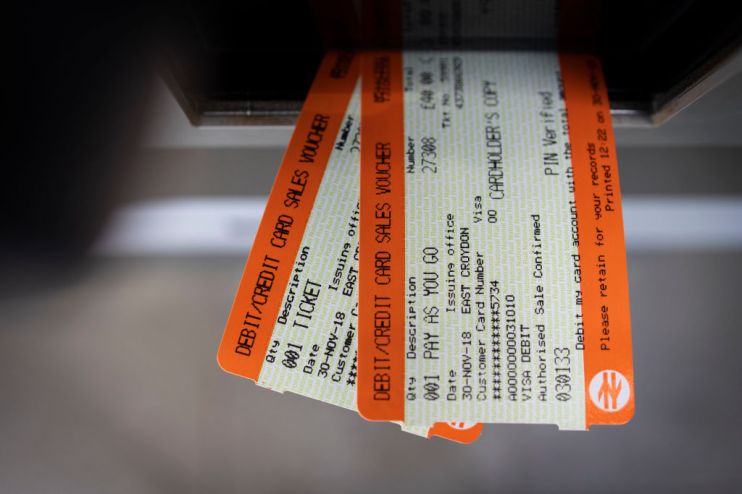‘Riddled with inconsistencies’: Government urged to reform rail fares

The government is under fresh pressure to reform the UK’s “bizarre” rail fare system, amid ongoing hikes and industrial action.
In a report published this morning, Campaign for Better Transport (CBT) launched “radical” proposals for a transformation of how fares are priced, alongside an “urgent action” shake up targeted at inconsistencies inherent in the system.
Commuters have faced multiple fare hikes. An increase last year, tied to July’s average earnings growth figure, was the largest rise in a decade.
The CBT said decades of complex regulations and years of layering additional fares on top of older ones has made buying train tickets more difficult, whilst creating a system “riddled with inconsistencies.”
Travelling during peak times, for example, can cost from as little as six per cent to as much as 132 per cent more than off-peak.
The CBT also pointed out discrepancies in pricing season tickets versus buying individual fares.
To lower fees, the report recommends a government-funded trial of low-cost monthly public transport passes, similar to the set up in France and Germany. This would ensure a best price guarantee on all tickets, as well as rewarding frequent users with a rail miles scheme akin to that used in airfares.
The single-leg pricing trial should also be expanded to help simplify fares, while the RPI measure should be permanently ditched in favour of the Consumer Price Index (CPI), the CBT said.
London business groups echoed the need for reform, calling for an end to the confusion surrounding how daily fares are calculated and a hastened roll-out of long overdue reforms.
The government has committed to introducing an arms-length body, which would plan services and set fares. But legislation for so-called Great British Railways (GBR) is not yet on the horizon, with its fate uncertain ahead of a general election.
Labour’s rail policy has been uncertain under Keir Starmer. However, at its party conference, the opposition teased a “radical” transport plan that would include nationalisation.
James Watkins, head of policy and public impact at London Chamber of Commerce and Industry said: “Best price guarantee is no longer something “good to have” but has rather become a necessity to cope with London’s transport troubles.”
“The current system leaves rail commuters confused with how their daily travel fare is calculated. A user-friendly, easy to access ticketing system is representative of any modern and innovative global city and London must clearly catch-up quickly by implementing a long-due rail fare reform.”
“The current system leaves rail commuters confused with how their daily travel fare is calculated. A user-friendly, easy to access ticketing system is representative of any modern and innovative global city and London must clearly catch-up quickly by implementing a long-due rail fare reform.”
James Watkins, head of policy and public impact at London Chamber of Commerce and Industry
Muniya Barua, deputy chief executive at BusinessLDN, said: “Fundamental reform of rail fares and ticketing systems is needed to adapt to post-pandemic commuting and travel patterns. Fares should be simpler, fairer and more flexible to ensure the railways meet the needs of passengers.”
Responding to the report, a spokesperson for the Mayor said: “Sadiq’s decision to freeze TfL fares for his first five years is still saving Londoners hundreds of pounds each year, compared to the costs they would now be paying if fares had risen in line with inflation.”
“Sadiq introduced Oyster fare-capping and the Hopper Fare to ensure that if you’re travelling on the TfL network using contactless or travelcard, you’re already getting a fair and simple system which guarantees best value for your travel.
A DfT spokesperson said: “The Government is delivering simpler, more flexible and better value train tickets for passengers through a number of ways.”
“For the second year in a row we have capped rail fares below inflation, with last year seeing the biggest ever Government intervention to keep prices down. We are also delivering more tap-in tap-out ticketing as well as single leg pricing to ensure that passengers get the best value for money.”